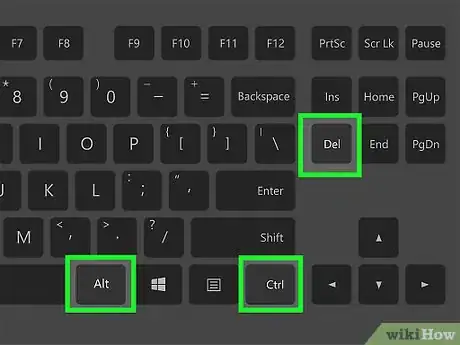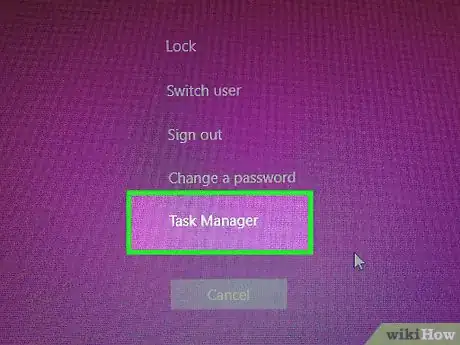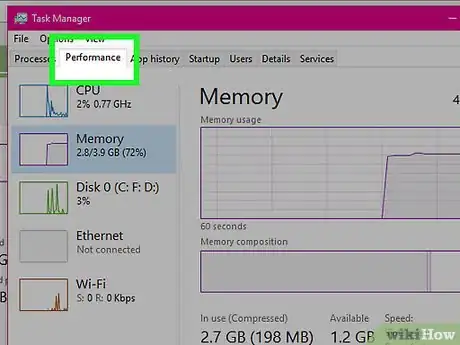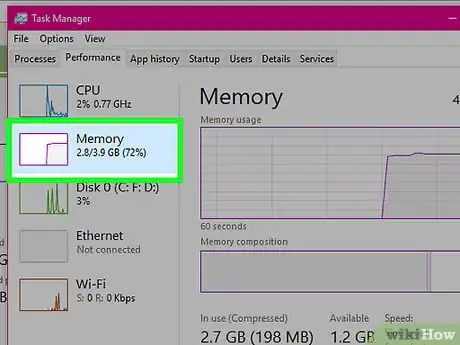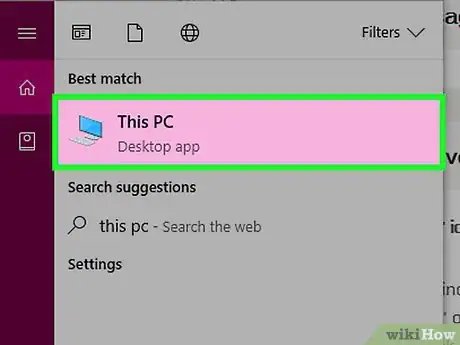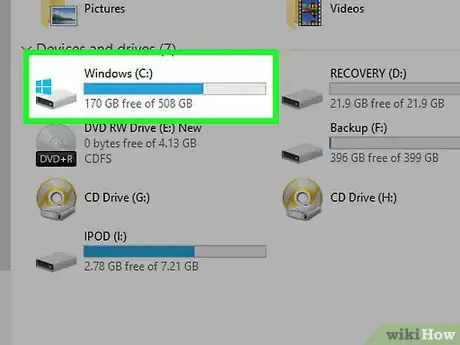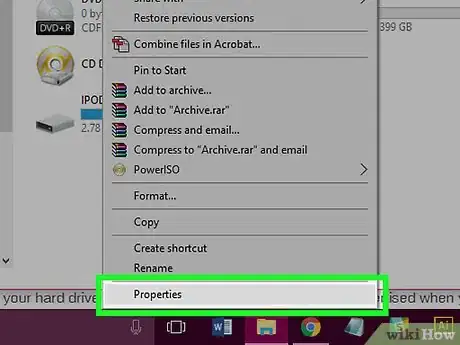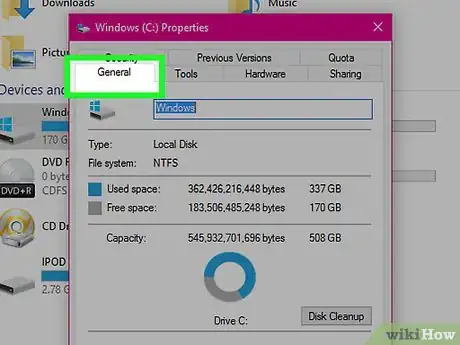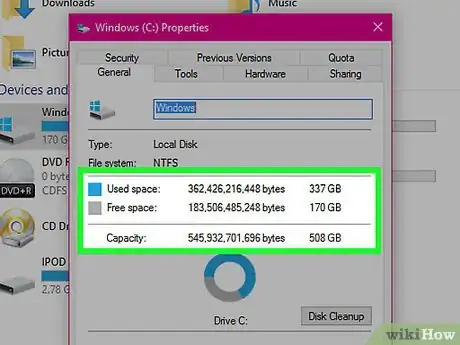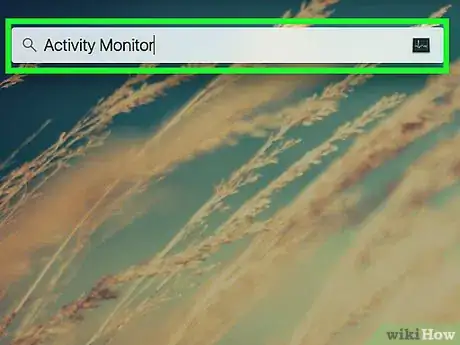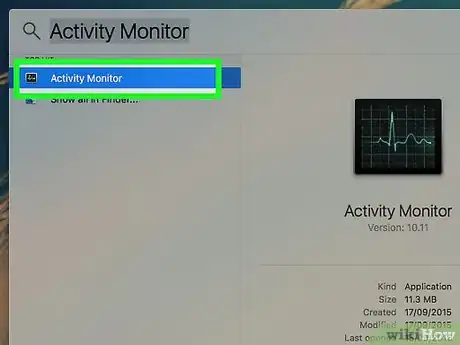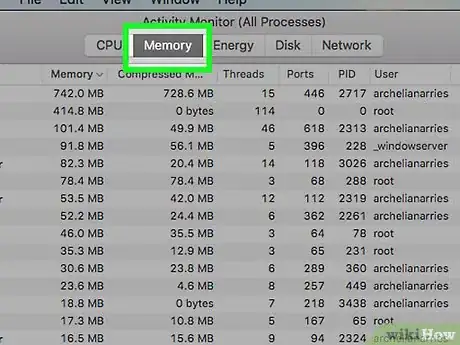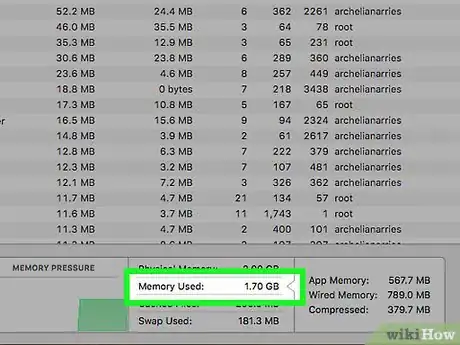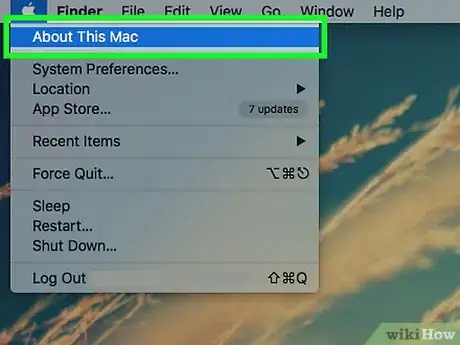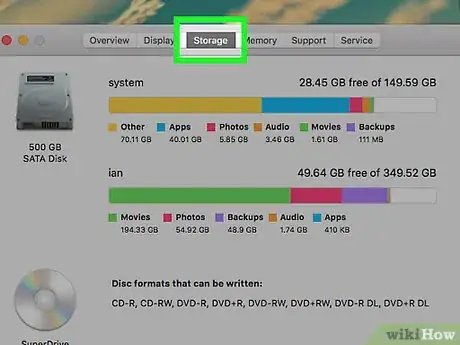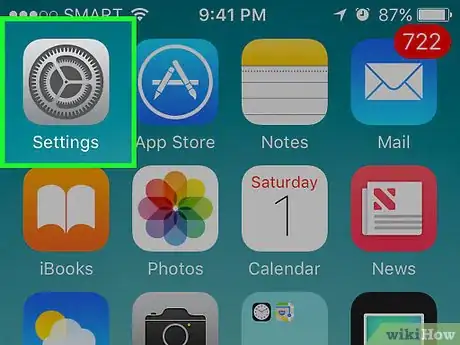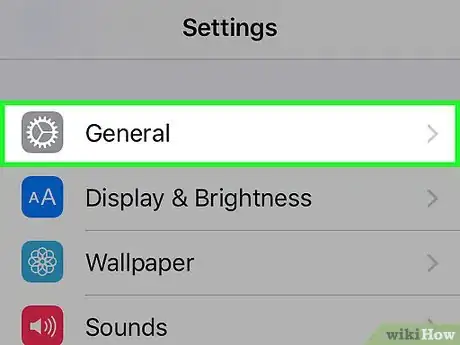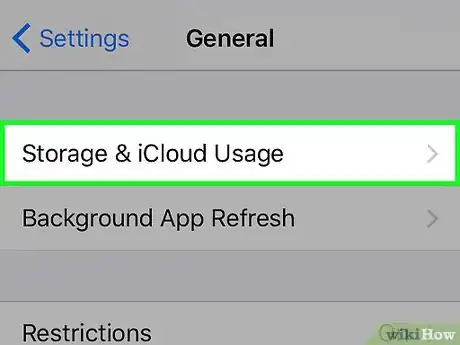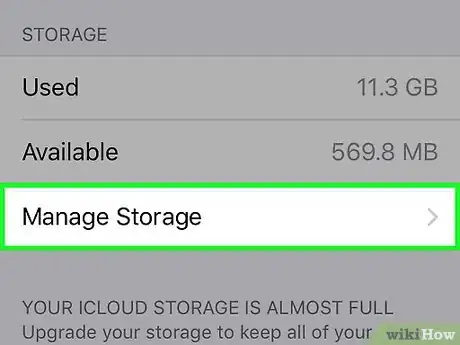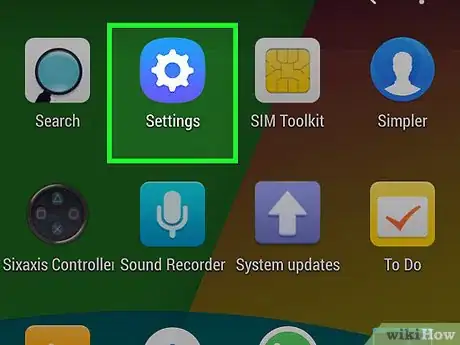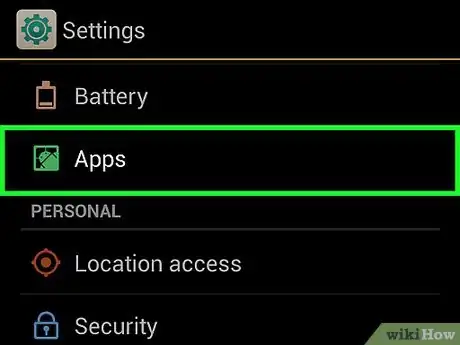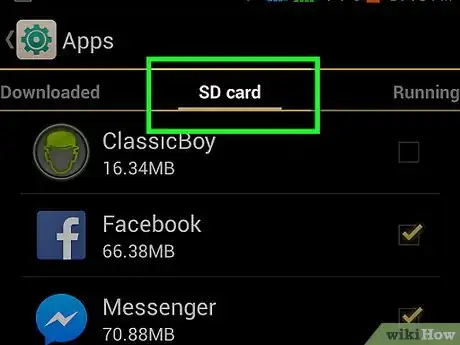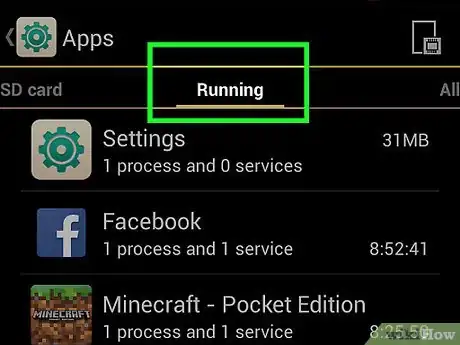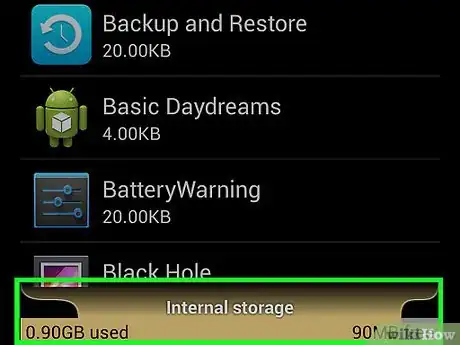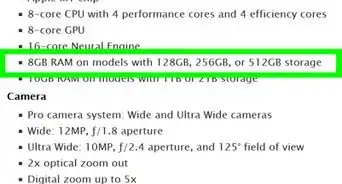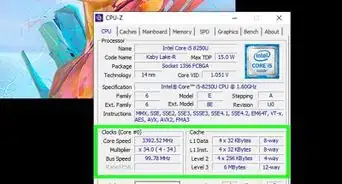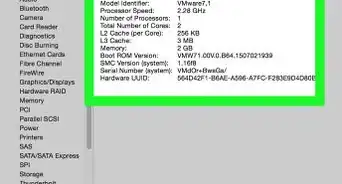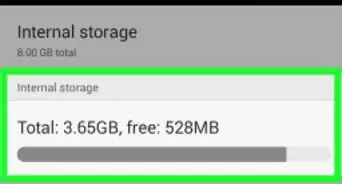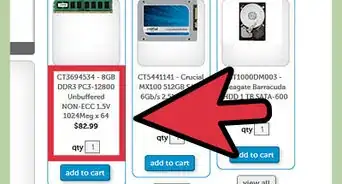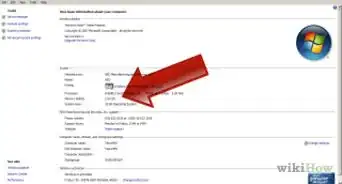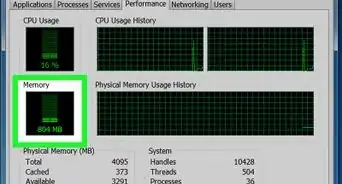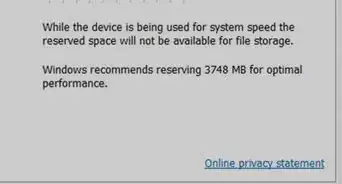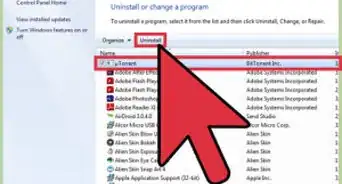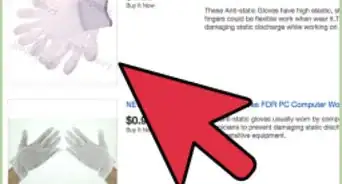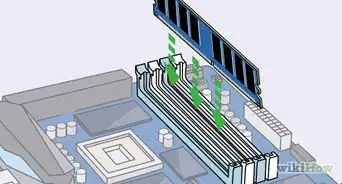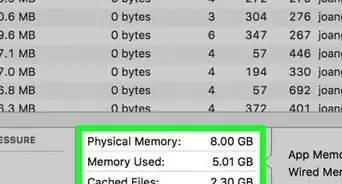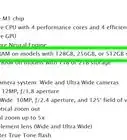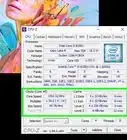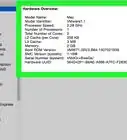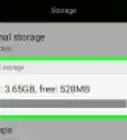A simple guide to checking your memory usage on your computer's hard drive
X
This article was co-authored by wikiHow staff writer, Jack Lloyd. Jack Lloyd is a Technology Writer and Editor for wikiHow. He has over two years of experience writing and editing technology-related articles. He is technology enthusiast and an English teacher.
The wikiHow Tech Team also followed the article's instructions and verified that they work.
This article has been viewed 477,527 times.
Learn more...
This wikiHow teaches you how to check both your computer's random access memory (RAM) usage and your computer's hard drive capacity.
Steps
Method 1
Method 1 of 6:
Checking RAM Usage on Windows
-
1Hold down Alt+Ctrl and press Delete. Doing so will open your Windows computer's task manager menu.
-
2Click Task Manager. It's the last option on this page.Advertisement
-
3Click the Performance tab. You'll see it at the top of the "Task Manager" window.
-
4Click the Memory tab. It's on the top-left side of the "Task Manager" window. You'll be able to view how much of your computer's RAM is being used in graph format near the top of the page, or by looking at the number beneath the "In use (Compressed)" heading.
Advertisement
Method 2
Method 2 of 6:
Checking Hard Drive Storage Space on Windows
-
1Double-click the "My PC" icon. It's the computer monitor icon likely found on your desktop.
- On some versions of Windows, "My PC" is called "My Computer".
- If you can't find "My PC" on your desktop, type "My PC" into the Start window's search bar and then click the computer monitor icon when it pops up.
-
2Right-click the C: hard drive icon. It's under the "Devices and drives" heading in the middle of the "My Computer" page.
- On some Windows versions, the hard drive will say "OS" above it.
-
3Click Properties. This option is at the bottom of the right-click menu.
-
4Click the General tab. You'll see this option at the top of the "Properties" window. Doing so will open the hard drive's "General" page, which lists attributes such as total storage.
-
5Review your hard drive's storage. The "Used space" section displays how many gigabytes of your hard drive are taken up by your files, while the "Free space" shows you the number of gigabytes left on your hard drive.
- You may notice a discrepancy between the total number of gigabytes listed on your hard drive and the number of gigabytes that was advertised when you bought the computer. This is because a certain portion of your computer's hard drive is used to store the computer's operating system; therefore, that space is irreversibly used, and thus, unlisted.
Advertisement
Method 3
Method 3 of 6:
Checking RAM Usage on Mac
-
1Click the "Spotlight" button. It's the magnifying glass icon in the top-right corner of the screen.
-
2Type "Activity Monitor" into the search bar. Doing so will bring up the "Activity Monitor" app.
-
3Click Activity Monitor. Doing so will open the Activity Monitor program, which will allow you to view your Mac's current RAM consumption.
-
4Click Memory. It's a tab at the top of the Activity Monitor window.
-
5Look at the "Memory Used" number. You'll see this option at the bottom of the page. The "Physical Memory" number here shows how much RAM your Mac has installed, while the "Memory Used" number is how much RAM your Mac is currently using.
Advertisement
Method 4
Method 4 of 6:
Checking Hard Drive Storage Space on Mac
-
1Click the Apple menu. It's the apple-shaped icon in the top-left corner of your Mac's screen.
-
2Click About This Mac. This option is near the top of the drop-down menu.
-
3Click Storage. You'll find this option at the top of the "About This Mac" page. On the "Storage" tab, you can see a color-coded breakdown of which file types are using up space.
- You can also view your currently free hard drive space in the top-right corner of the page in the "X GB free of Y GB" section where "X" is your Mac's free space and "Y" is your Mac's total space.
Advertisement
Method 5
Method 5 of 6:
Checking Hard Drive Storage Space on iPhone
-
1Open your iPhone's Settings. It's the grey gear icon that's likely on the Home Screen.
- Due to operating system restrictions, you can't view your iPhone's RAM usage.
-
2Tap General. You should see this option toward the bottom of the screen.
-
3Tap Storage & iCloud Usage. It's toward the bottom of the screen.
-
4Tap Manage Storage under the "Storage" section. This section is at the top of the page. Doing so will open a list of your device's apps in order of most space taken up to least space taken up, along with "Used" and "Available" sections at the top of the page that display your iPhone's used space and free space, respectively.
- Tapping the second Manage Storage on this page will open the iCloud page where you can see how much room remains in your iCloud Drive.
Advertisement
Method 6
Method 6 of 6:
Checking Hard Drive and RAM Usage on Android
-
1Open your Android's Settings. It's the grey gear icon likely found in the App Drawer.
-
2Scroll down and tap Apps. This option is in the "Device" section.
- On some Androids (such as the Samsung Galaxy), you must first tap Device before you can tap Apps.
-
3Swipe left on the "Apps" page. Doing so will open the "SD Card" page, which displays your currently used hard drive space in the bottom-left corner of the screen and your total storage space in the bottom-right corner of the screen.
-
4Swipe left on the "SD Card" page. Doing so will open the "Running" tab which displays your currently-running programs.
-
5Review the different categories. There are three values at the top of the page that will show you your Android's RAM usage:
- System - The number of gigabytes currently used by your Android's operating system.
- Apps - The number of gigabytes currently used by running apps.
- Free - The number of free gigabytes of RAM.
Advertisement
Community Q&A
-
QuestionCan I take memory out of an old Mac computer to increase the memory in another Mac computer of about the same age?
 DenneiskTop AnswererNo. Apple Macs were designed to not be changed or modified in any way. You'll have to buy a new Mac or enter into the world of PCs.
DenneiskTop AnswererNo. Apple Macs were designed to not be changed or modified in any way. You'll have to buy a new Mac or enter into the world of PCs. -
QuestionHow do I check memory usage on an iPad?
 Community AnswerGo into Settings > General > Storage. It should then display the amount of memory used, memory available, and the usage per app.
Community AnswerGo into Settings > General > Storage. It should then display the amount of memory used, memory available, and the usage per app.
Advertisement
Warnings
- If a suspicious process is using a significant amount of memory, try running an anti-virus scan.⧼thumbs_response⧽
- Only kill processes you are certain are not system critical. You could easily and irreparably harm files and data used to run your operating system.⧼thumbs_response⧽
Advertisement
About This Article
Advertisement
